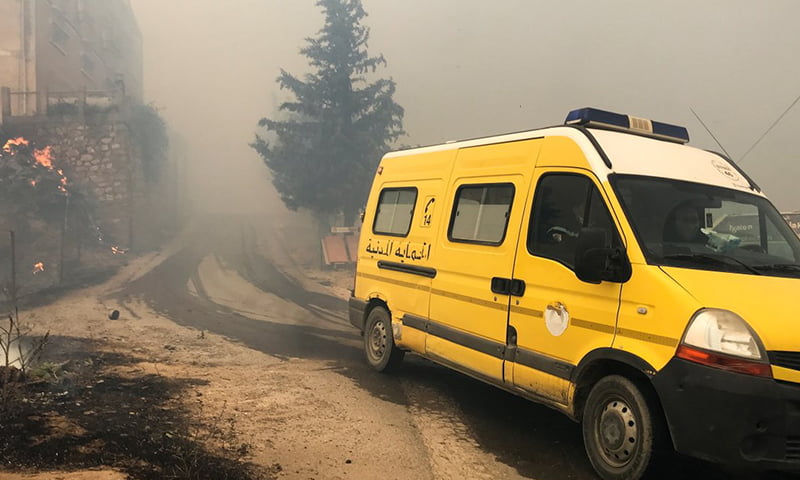The interior ministry said earlier the wildfires raging east of the capital Algiers had killed at least 7 civilians. Thirty fires at the same time in the same region can’t be by chance.
Multiple fires were burning through forests and devouring the olive trees, cattle, and chickens that provide the livelihoods of families in the Kabylie region.
Other northern areas of Algeria also had active wildfires. The Civil Protection authority said on Algerian radio that seven people had died, six in Kabylie and a man in his 80s trying to save his animals in the Setif region to the east.
It counted 41 blazes in 18 wilayas, or regions, as of Monday night, with 21 of them burning around the Kabyle capital of Tizi Ouzou.

The online media outlet TSA said up to 11 people had been killed in the blazes, including those in Kabylie. Many started Monday, spurred on by high temperatures and wind.
Interior Minister Kamel Beldjoud traveled to Kabylie to assess the situation.
Dozens of blazes sprang up on Monday in the Kabylie region and elsewhere, and Algerian authorities sent in the army to help citizens battle blazes and evacuate.
Algeria’s president announced that 25 soldiers have been killed saving residents from the wildfires ravaging forests and villages east of the capital, adding to the fire death toll this week in the North African nation.
President Abdelmadjid Tebboune tweeted late on Tuesday that the soldiers saved 100 citizens from the blazes in two areas in the mountainous Kabylie region, home of the Berbers. Four other soldiers were seriously burned fighting the fires and seven others also had burns, the Ministry of National Defence said.

“Only criminal hands can be behind the simultaneous outbreak of about 50 fires across several localities of the province,” the minister said on state television, appearing to suggest arson.
“Thirty fires at the same time in the same region can’t be by chance,” Beldjoud said on national television, although no arrests were announced.
A 92-year-old woman living in the Kabyle Mountain village of Ait Saada said the scene on Monday night looked like “the end of the world”.
“We were afraid,” Fatima Aoudia told The Associated Press news agency. “The entire hill was transformed into a giant blaze.”








